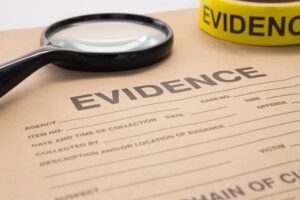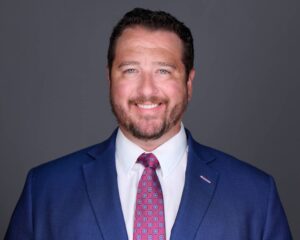After a motorcycle accident in Florida, it’s natural to replay the crash and wonder if you could have done something differently. Many injured riders find themselves replaying the crash over and over, asking, “Did I do something wrong?” Maybe you were going a few miles over the speed limit, or perhaps you changed lanes without signaling. Under Florida law, being partly at fault does not automatically prevent you from recovering damages. A skilled Florida motorcycle accident lawyer can explain your rights and guide you through each step of this complex process. The team at Englander Peebles is ready to review your case and help you move forward. Call us today at (954) 226-9134 to schedule a free consultation.
How a Florida Motorcycle Accident Lawyer Challenges Unfair Blame
 One of the most predictable tactics an insurance company uses after a motorcycle crash is to try to shift as much blame as possible onto the injured rider. They know that assigning even a small percentage of fault to you can save them a significant amount of money.
The legal team at Englander Peebles is highly familiar with this strategy and is prepared to fight back with a thorough, evidence-based approach. We understand that the initial story told by an insurance adjuster is rarely the complete story.
We begin by investigating your accident in detail to uncover what really happened. Our process starts with a thorough investigation into every detail of your accident.
Our team conducts an independent inquiry aimed at uncovering the true cause of the crash. We may visit the accident scene to check sightlines and road conditions, track down additional witnesses, and gather video footage from traffic cameras or nearby businesses.
A Florida motorcycle accident attorney from our firm will carefully build a case that highlights the other driver’s primary negligence. Our mission is to shield you from unjust blame and pursue the accountability you deserve so you can focus on moving forward.
One of the most predictable tactics an insurance company uses after a motorcycle crash is to try to shift as much blame as possible onto the injured rider. They know that assigning even a small percentage of fault to you can save them a significant amount of money.
The legal team at Englander Peebles is highly familiar with this strategy and is prepared to fight back with a thorough, evidence-based approach. We understand that the initial story told by an insurance adjuster is rarely the complete story.
We begin by investigating your accident in detail to uncover what really happened. Our process starts with a thorough investigation into every detail of your accident.
Our team conducts an independent inquiry aimed at uncovering the true cause of the crash. We may visit the accident scene to check sightlines and road conditions, track down additional witnesses, and gather video footage from traffic cameras or nearby businesses.
A Florida motorcycle accident attorney from our firm will carefully build a case that highlights the other driver’s primary negligence. Our mission is to shield you from unjust blame and pursue the accountability you deserve so you can focus on moving forward.
Understanding Florida’s Modified Comparative Negligence Law
When you meet with a skilled Florida motorcycle accident lawyer, one of the first topics you will discuss is how Florida’s comparative negligence system affects your ability to seek compensation. This system governs whether an injured rider can recover damages when their own actions may have contributed to the crash. Florida now uses what is called modified comparative negligence, which replaced the older pure comparative negligence rule that had been in place for many years.What Does Modified Comparative Negligence Mean for Motorcycle Accident Claims?
Under Florida Statute § 768.81, a jury in a personal injury case must assign a percentage of fault to everyone involved in the accident based on the evidence presented. If you are found partially responsible for your motorcycle accident, you can still recover damages, but the amount you receive will be reduced in proportion to your share of fault. For example, imagine a jury finds that your total losses, including medical bills, lost income, and pain and suffering, equal $200,000. If the evidence shows that the other driver was 80 percent at fault and you were 20 percent at fault, your award would be reduced by that same percentage. In this situation, you would recover $160,000 rather than the full amount.The 51% Bar Rule: When Fault Prevents Recovery in Florida
 Florida’s modified comparative negligence law also contains what is known as the 51 percent bar to recovery. This rule means that if you are found to be more than 50 percent responsible for the accident, you cannot recover any damages.
That’s why you need to be cautious when talking to an insurance representative. Insurance companies often try to increase the percentage of fault assigned to a motorcyclist.
If they can convince a jury that your level of fault was 51 percent rather than 49 percent, they eliminate their obligation to pay. This is why working with an experienced Florida motorcycle accident lawyer who can build a strong case is so important.
Florida’s modified comparative negligence law also contains what is known as the 51 percent bar to recovery. This rule means that if you are found to be more than 50 percent responsible for the accident, you cannot recover any damages.
That’s why you need to be cautious when talking to an insurance representative. Insurance companies often try to increase the percentage of fault assigned to a motorcyclist.
If they can convince a jury that your level of fault was 51 percent rather than 49 percent, they eliminate their obligation to pay. This is why working with an experienced Florida motorcycle accident lawyer who can build a strong case is so important.
Common Scenarios Where Fault Is Shared in Motorcycle Crashes
Motorcycle accidents are rarely simple, and there are often multiple contributing factors. Insurance companies look carefully for actions that can be portrayed as negligent in order to reduce their payout. Understanding common scenarios can help you see how these arguments might arise in your case.Left‑Turn Collisions and Speeding: Who Is Responsible?
One frequent cause of motorcycle accidents occurs when a driver makes a left turn at an intersection, such as those along US‑1 in Fort Lauderdale, and fails to see an oncoming motorcycle. The driver turns into the rider’s path, often resulting in a serious collision. While the driver’s failure to yield is typically the main cause, evidence that the motorcyclist was speeding can lead the insurer to argue shared fault. An attorney can work to show the driver’s actions were the primary cause, though a jury may still assign some fault to the rider.Lane Splitting in Florida: Can It Affect Your Claim?
Lane splitting, which involves riding between lanes of slow or stopped traffic, is not clearly addressed in Florida law. It is neither expressly permitted nor completely prohibited, creating a legal gray area. If you were riding between lanes and a car changed lanes without checking and hit you, the driver could be considered negligent for making an unsafe move. The insurance company, however, may argue that lane splitting put you in a risky position and should limit your recovery. The outcome often depends on the specific facts of the crash and your attorney’s ability to show that the driver’s actions were the primary cause.Rear‑End Motorcycle Accidents and Brake Light Issues
In most rear‑end collisions, the trailing driver is generally considered at fault for following too closely or failing to pay attention. However, specific circumstances can make the situation more complex. For example, if you slow for traffic on the Sawgrass Expressway and a car hits you from behind, an investigation might reveal that your motorcycle’s brake light was not working. The insurance company could argue that you share responsibility because you did not signal your slowdown, and even if the other driver was distracted, a jury might still find that the faulty brake light contributed to the crash.How Insurance Companies Use Shared Fault to Reduce or Deny Claims
When you file a claim after a motorcycle crash, it helps to understand the perspective of the insurance adjuster handling your case. The adjuster’s goal is not to be fair or sympathetic. Their primary responsibility is to settle your claim for the lowest amount possible, and Florida’s comparative negligence law is one of the most effective tools they use to accomplish that.The Financial Incentive to Shift Blame in Florida Accident Cases
Insurance companies have a strong financial motivation to assign as much fault as possible to you. Every percentage of fault they attribute to the injured rider directly reduces the amount they have to pay. If they can increase your share of fault beyond 50 percent, they may avoid paying anything at all. This is not about discovering the truth of what happened; it is a calculated business strategy. Adjusters review every detail of the accident looking for opportunities to shift blame.How Adjusters Use Your Words Against You After a Crash
Because of this, it is important to be careful when speaking with an insurance representative. An adjuster may call you and ask friendly, casual questions, such as whether you were in a hurry, if you tend to drive a little over the speed limit on that road, or whether glare from the sun made it difficult to see. These questions are designed to collect statements that can later be used to argue that you contributed to the crash. Providing a recorded statement without guidance from a Florida motorcycle accident lawyer can put your claim at risk.Why a Police Report Is Not the Final Word on Fault
Insurance adjusters often treat a traffic crash report as if it is the final word on fault, especially if it seems to support their position. However, the investigating officer’s report is not legally binding. Officers at accident scenes rarely have the time or resources to conduct a full reconstruction, and their notes may include assumptions rather than verified facts. An experienced attorney can challenge those findings using evidence from an independent investigation and trusted sources like the NHTSA.How a Florida Motorcycle Accident Lawyer Proves Fault
A skilled attorney does far more than simply argue the facts. They build a clear, evidence‑backed account of how the crash happened, directly challenging the insurance company’s attempts to shift blame.Gathering and Analyzing Physical Evidence
 Your attorney may bring in an accident reconstruction expert to examine the scene. This expert studies details like skid marks, vehicle positions, and debris patterns to calculate speed, angles of impact, and reaction times.
A thorough inspection of the motorcycle and the other vehicle can reveal crush damage that shows how forces were applied during the crash. This type of scientific analysis carries far more weight than the statements of those involved.
Your attorney may bring in an accident reconstruction expert to examine the scene. This expert studies details like skid marks, vehicle positions, and debris patterns to calculate speed, angles of impact, and reaction times.
A thorough inspection of the motorcycle and the other vehicle can reveal crush damage that shows how forces were applied during the crash. This type of scientific analysis carries far more weight than the statements of those involved.
Using Expert Witnesses to Support Your Claim
In some cases, additional experts are called to strengthen the claim. A human factors specialist may explain how a driver’s failure to see a motorcycle is not an acceptable excuse when the rider was in plain view. If roadway conditions contributed to the crash, a civil engineer may testify about unsafe design or poor maintenance. Research from organizations like the CDC can also back up this testimony with safety data.Uncovering and Presenting Digital Evidence
Key evidence is often available through digital sources. A Florida motorcycle accident lawyer can take the proper legal steps to obtain traffic camera footage, surveillance videos from nearby businesses, or dashcam recordings from other vehicles in the area. When necessary, they may also obtain phone records to determine whether the other driver was texting or otherwise distracted in the moments before the collision. This type of digital evidence can serve as powerful and reliable proof of the other driver’s negligence.Deadlines for Filing a Motorcycle Accident Claim in Florida
Florida law places a strict time limit on how long you have to file a motorcycle accident claim. Under Florida Statutes § 95.11(4)(a), most personal injury actions, including motorcycle accident cases, must be filed within two years from the date of the crash. Certain exceptions may apply, but once this deadline passes, you lose the ability to pursue compensation through the courts. Acting quickly is important for more than just meeting the statute of limitations. Physical evidence, such as skid marks, debris patterns, and surveillance video, can disappear within days or weeks. Witness memories fade, and critical records can become more difficult to obtain. Reaching out to a Florida motorcycle accident lawyer as soon as possible gives your legal team the best chance to secure evidence, build a strong case, and protect your rights.Take Action Today With a Florida Motorcycle Accident Lawyer
